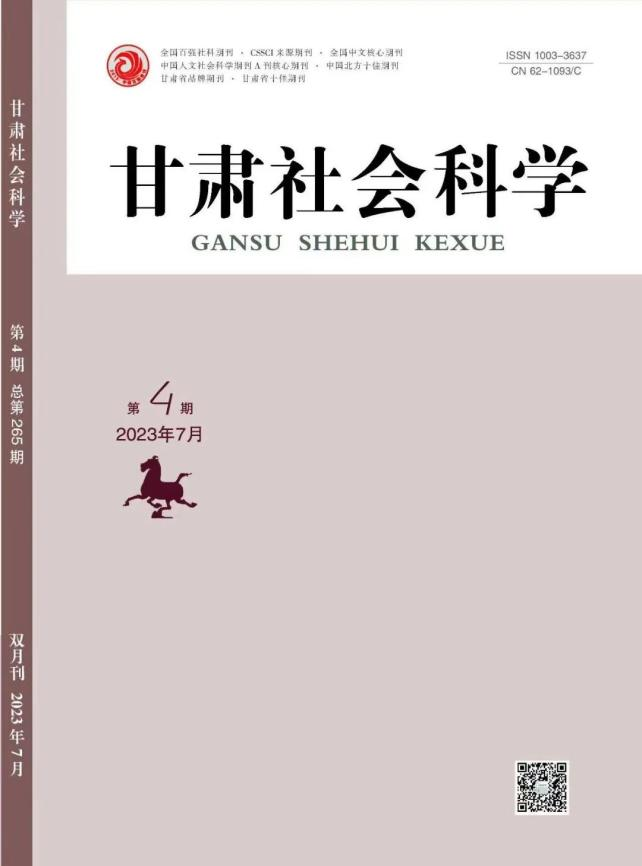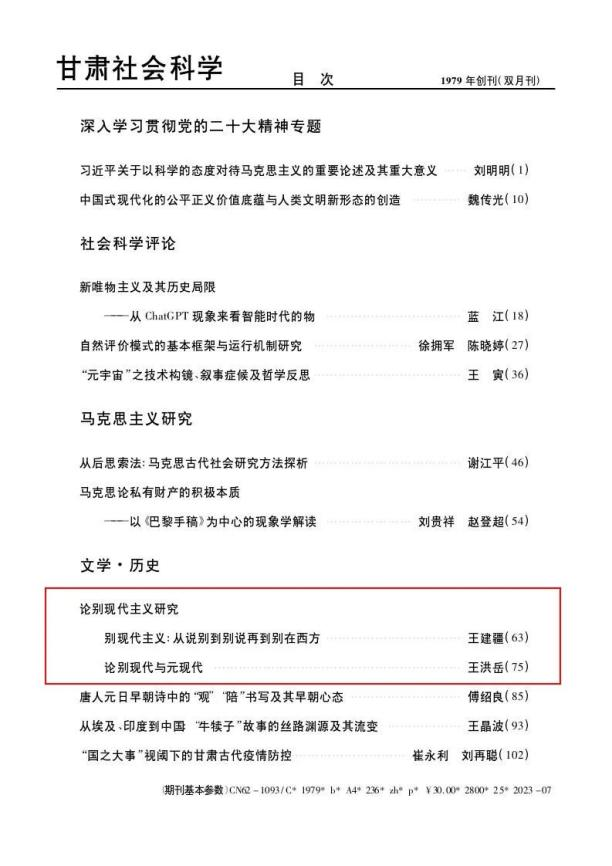Gansu Social Sciences has recently launched a special column on “Bie-Modernism Research”
Profile:
The CSSCI-indexed journal Gansu Social Sciences featured a special issue on “Bie-Modernism Research” in its 4th issue of 2023. The issue included two articles: Bie-Modernism: From Bie to Bie Theory to Bie in the West by Professor Wang Jianjiang from Shanghai Normal University, as well as Bie-Modernism and Meta-Modernism by Professor Wang Hongyue from Zhejiang Normal University.
This issue of Gansu Social Sciences includes sections on “In-depth Study and Implementation of the 20th National Congress of the Communist Party of China” “Social Science Review” “Marxist Studies” “Law” “Society” and “Economy & Management”.
Detail:


Abstract of Bie-Modernism: From Bie to Bie Theory to Bie in the West:
Bie-modernism is an innovative theory that pertains to social forms, aesthetic forms, and artistic forms. It advocates distinguishing between true and false modernity, embodying authentic modernity, and achieving genuine modernization. Bie-modernism is a new form of “Bie theory” that has evolved from the traditional Chinese concept. “Bie in the West” refers to the dissemination of Bie-modernism, which originated in China, to the West and its subsequent research by Western scholars.
The distinction of Bie-modernism originates from the primary meaning of the Chinese character “别” in ancient Chinese and imbues it with a new significance in the modern era, based on the ancient Chinese concept of “Bie theory”. This unique form of “Bie theory” has garnered considerable attention and discussions in academic circles both domestically and internationally, as well as followers in the fields of art and poetry. In recent years, independent Bie-modernism research centers have been established in universities in the United States and the European Union, which is a rare academic event.
The progression from “Bie” to “Bie Theory” and then to “Bie in the West” essentially represents the process by which the indigenous and original theory of Bie-modernism embarks on engaging in international academic dialogues and establishing its own international academic status.
Abstract of Bie-Modernism and Meta-Modernism:
Bie-modernism is a new discourse on literary theory proposed by Wang Jianjiang, a contemporary Chinese literary critic, in response to Western postmodern theory and the mixed modernity in China. It has gained attention from scholars in the United States and Europe. Bie-modernism represents a social form characterized by hybridity and mixture, while Bie-modernism as a theory reflects upon this condition of “being different in the present” and constructs a theoretical framework for the future modernity in China. However, there is a certain contradiction between the two on the discursive level. This theory is an original and innovative discourse on literary theory proposed by Chinese scholars during the deepening reform and opening-up period.
Meta-modernism is a product of Western discourse innovation that came after postmodernism and has been enriched and developed by Chinese scholars in conjunction with contemporary literary theory. Meta-modernism refers to the societal levels and forms that come after postmodernism, while meta-modernism points to the artistic and aesthetic sensibilities. However, the intentions of the two are consistent. Meta-modernism is a new theory that recognizes the originally opposing elements in cultural arts, aesthetic sensibilities, and strives to integrate them into a cohesive whole.